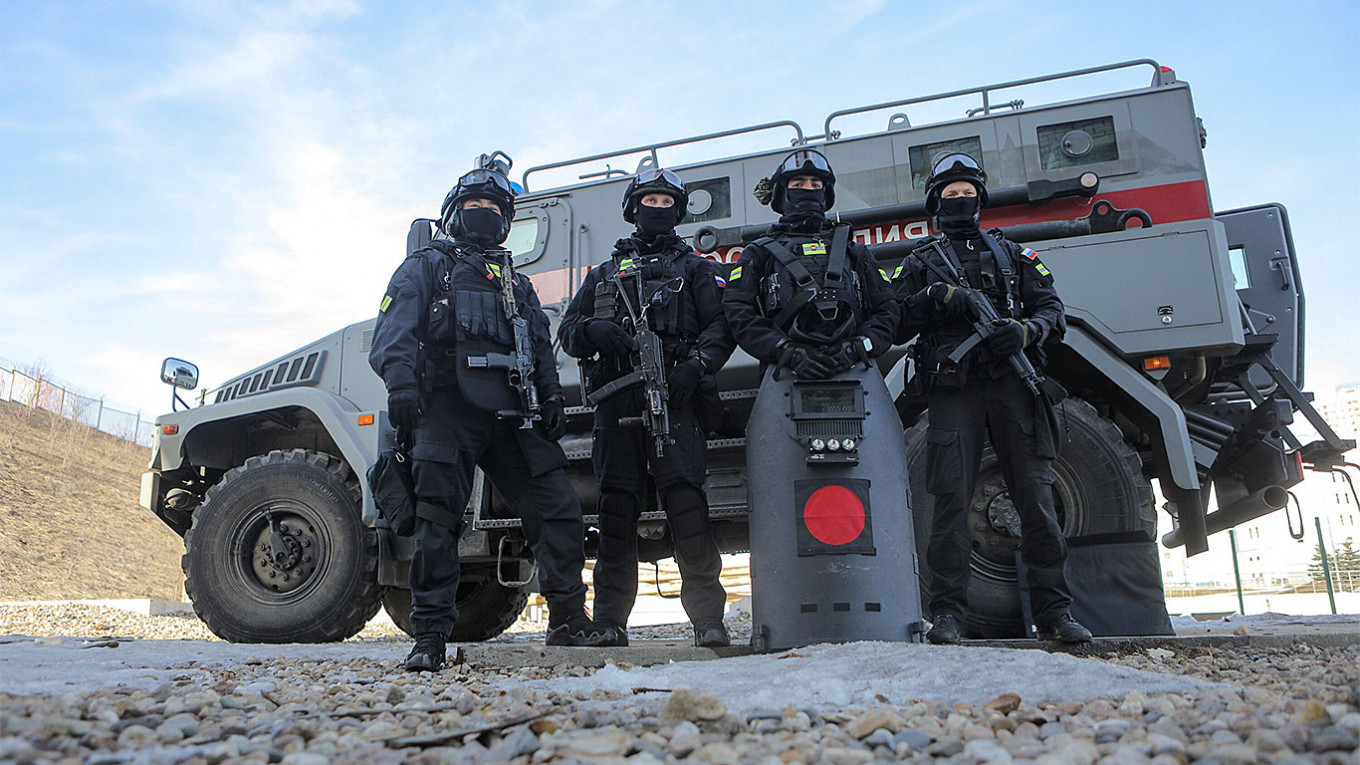Russian society is reeling from a historic crackdown on dissent which has intensified since President Vladimir Putin sent troops to Ukraine on Feb. 24.
Rights activists fear the new legislation will be used to snuff out any last vestiges of dissent.
"The changes are an adequate and timely response to the challenges that our country is currently facing," senior lawmaker Vasily Piskarev said in a statement released by the lower house of parliament.
Collecting, storing and transferring to the enemy information that can be used against the Russian army will be considered a form of espionage and is to be punishable by between 10 and 20 years in jail.
Putin's decision to send troops to Ukraine has led to a further clampdown on freedom of speech and media in the country and sparked an exodus of foreign and independent Russian journalists.
Criticism of Russia's military intervention in Ukraine has essentially been banned in the country, and the words "war" and "invasion" outlawed.
In March, Russia passed into law prison sentences of up to 15 years for spreading false information aimed at discrediting its military forces.
A Message from The Moscow Times:
Dear readers,
We are facing unprecedented challenges. Russia's Prosecutor General's Office has designated The Moscow Times as an "undesirable" organization, criminalizing our work and putting our staff at risk of prosecution. This follows our earlier unjust labeling as a "foreign agent."
These actions are direct attempts to silence independent journalism in Russia. The authorities claim our work "discredits the decisions of the Russian leadership." We see things differently: we strive to provide accurate, unbiased reporting on Russia.
We, the journalists of The Moscow Times, refuse to be silenced. But to continue our work, we need your help.
Your support, no matter how small, makes a world of difference. If you can, please support us monthly starting from just $2. It's quick to set up, and every contribution makes a significant impact.
By supporting The Moscow Times, you're defending open, independent journalism in the face of repression. Thank you for standing with us.
Remind me later.






